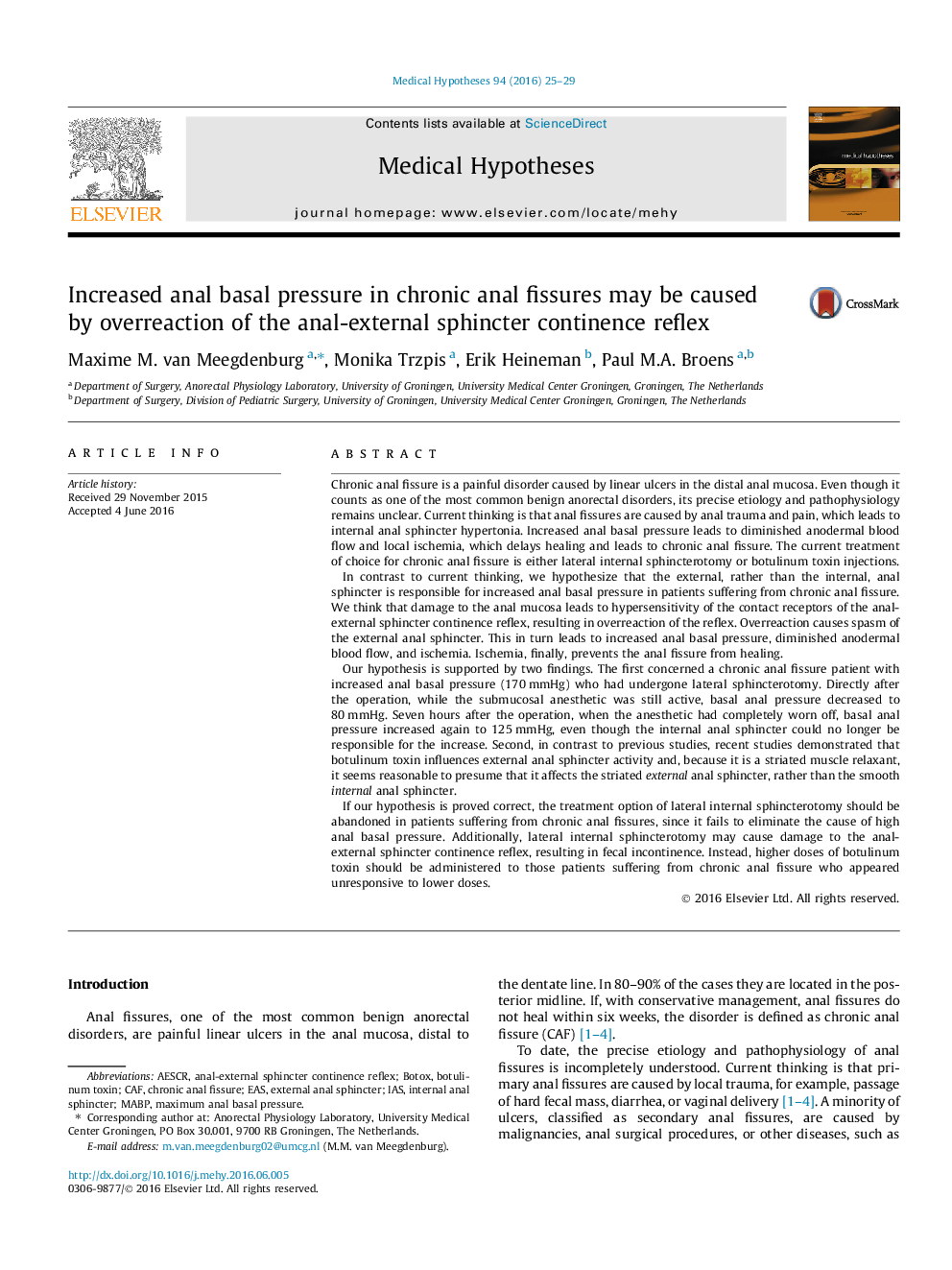| کد مقاله | کد نشریه | سال انتشار | مقاله انگلیسی | نسخه تمام متن |
|---|---|---|---|---|
| 5810373 | 1556551 | 2016 | 5 صفحه PDF | دانلود رایگان |
Chronic anal fissure is a painful disorder caused by linear ulcers in the distal anal mucosa. Even though it counts as one of the most common benign anorectal disorders, its precise etiology and pathophysiology remains unclear. Current thinking is that anal fissures are caused by anal trauma and pain, which leads to internal anal sphincter hypertonia. Increased anal basal pressure leads to diminished anodermal blood flow and local ischemia, which delays healing and leads to chronic anal fissure. The current treatment of choice for chronic anal fissure is either lateral internal sphincterotomy or botulinum toxin injections.In contrast to current thinking, we hypothesize that the external, rather than the internal, anal sphincter is responsible for increased anal basal pressure in patients suffering from chronic anal fissure. We think that damage to the anal mucosa leads to hypersensitivity of the contact receptors of the anal-external sphincter continence reflex, resulting in overreaction of the reflex. Overreaction causes spasm of the external anal sphincter. This in turn leads to increased anal basal pressure, diminished anodermal blood flow, and ischemia. Ischemia, finally, prevents the anal fissure from healing.Our hypothesis is supported by two findings. The first concerned a chronic anal fissure patient with increased anal basal pressure (170Â mmHg) who had undergone lateral sphincterotomy. Directly after the operation, while the submucosal anesthetic was still active, basal anal pressure decreased to 80Â mmHg. Seven hours after the operation, when the anesthetic had completely worn off, basal anal pressure increased again to 125Â mmHg, even though the internal anal sphincter could no longer be responsible for the increase. Second, in contrast to previous studies, recent studies demonstrated that botulinum toxin influences external anal sphincter activity and, because it is a striated muscle relaxant, it seems reasonable to presume that it affects the striated external anal sphincter, rather than the smooth internal anal sphincter.If our hypothesis is proved correct, the treatment option of lateral internal sphincterotomy should be abandoned in patients suffering from chronic anal fissures, since it fails to eliminate the cause of high anal basal pressure. Additionally, lateral internal sphincterotomy may cause damage to the anal-external sphincter continence reflex, resulting in fecal incontinence. Instead, higher doses of botulinum toxin should be administered to those patients suffering from chronic anal fissure who appeared unresponsive to lower doses.
Journal: Medical Hypotheses - Volume 94, September 2016, Pages 25-29
